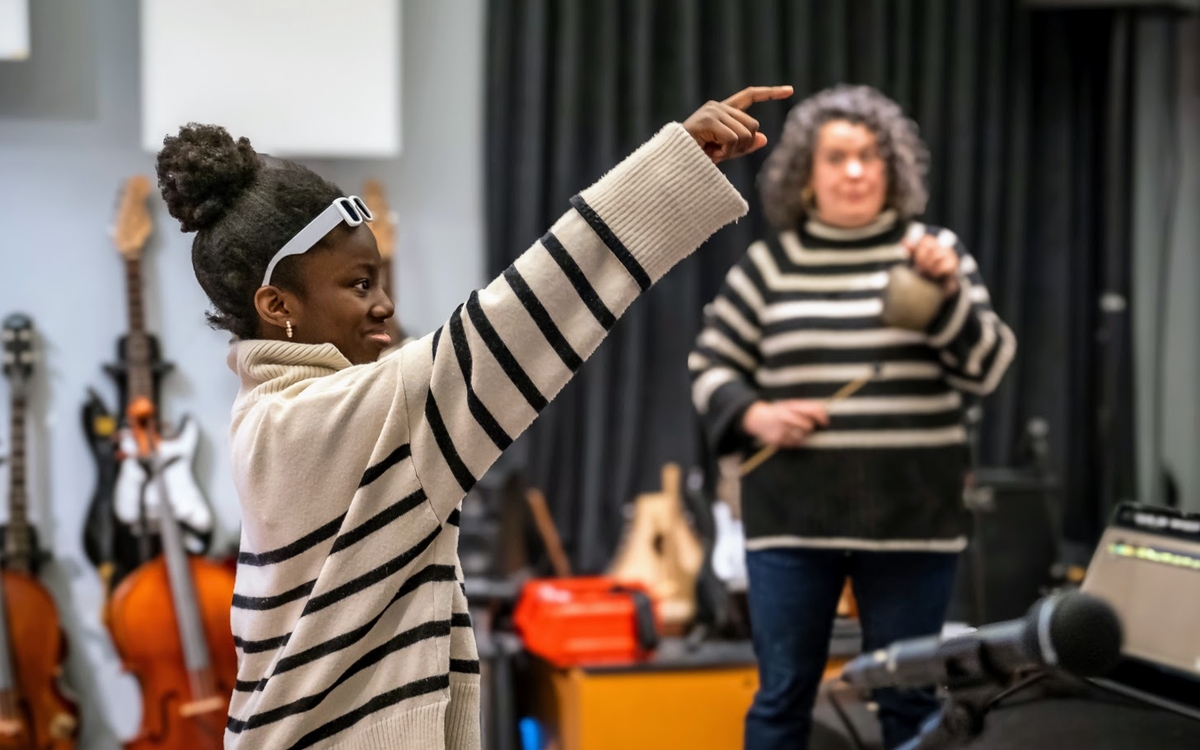Content
Cette page est aussi disponible en français
The Orchestre de chambre de Paris and students from Collège Mozart (19th arrondissement) join forces for the eighth time for a musical creation and concert on March 7th. In this Olympic year, the sounds of sport take center stage. Report from the Philharmonie studios.
The sound of a bouncing basketball, a runner's breathing, the impact of a tennis ball on a racket, the crunch of sneaker soles on a parquet floor… These are the sounds that students at the Collège Mozart (19th arrondissement) recorded themselves in the sports halls and streets of their neighborhood in early January. This is the first stage in what will be a major creation, which they will perform with musicians from the Orchestre de chambre de Paris, at the Paris Anim'Mathis center, on March 7th.
Discovering the sounds of the 19th century
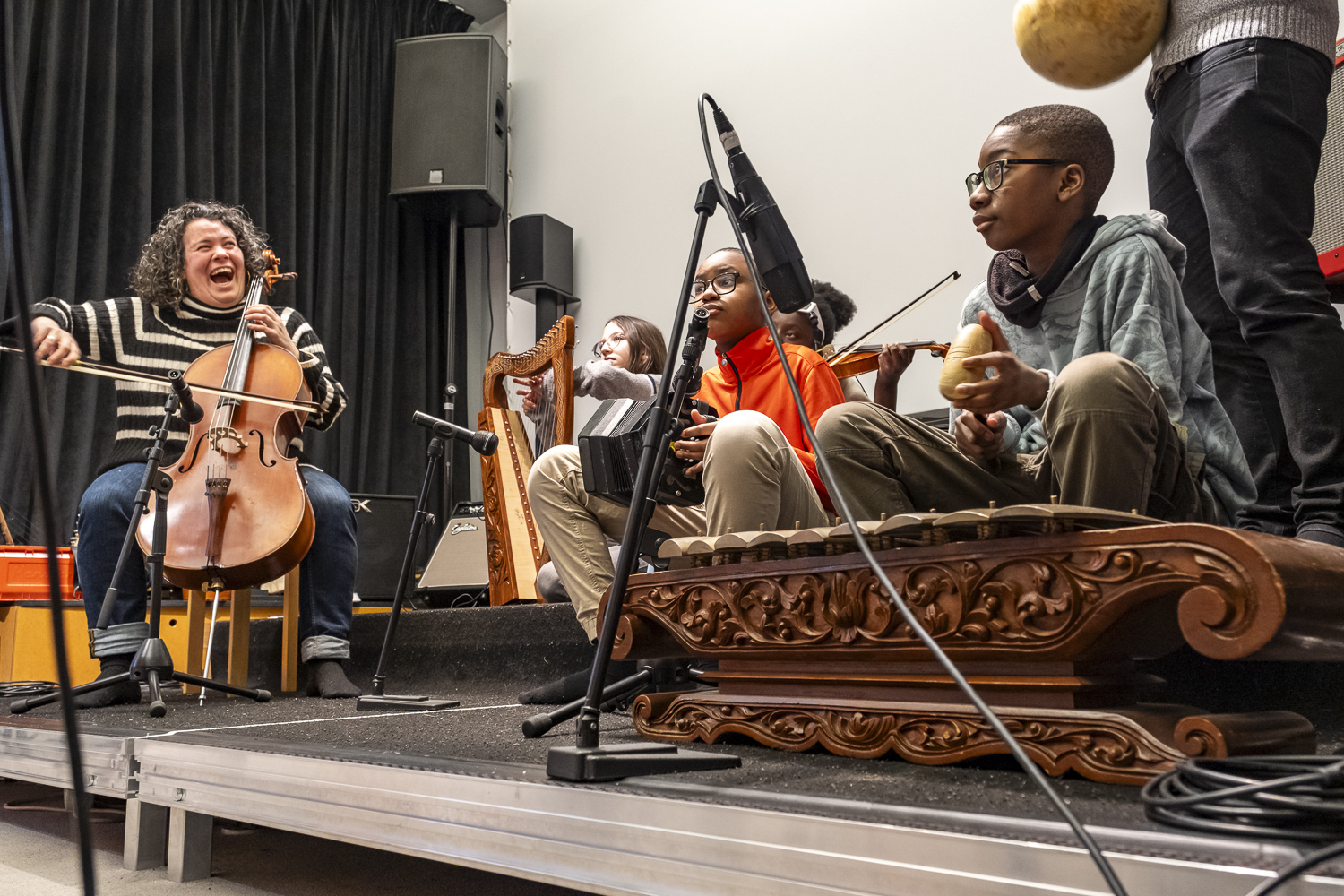
Crédit photo :
Clément Dorval / Ville de Paris
Inès, 12, went to the Jules-Ladoumègue sports center and the Buttes-Chaumont park with her friends to "capture noises". "At first, I was afraid I didn't know how to use the recording equipment, but it was easier than I thought! She found it easy enough to come up with sounds that matched sports and physical effort. "We gave them a head start, and afterwards, they hit the streets," enthuses her music teacher, Étienne Comes. "It teaches them to experience their neighborhood in a different way".
"This year's theme is sport and performance, to tie in with the Olympic and Paralympic Games," continues the teacher, who has been developing projects with the Orchestre de chambre de Paris as part of the l'Art pour grandir program for the past eight years. His objective ? "First, to create a class dynamic. Secondly, to take the students to places they're not used to going to - in this case, the Philharmonie de Paris, which is just a stone's throw from where they live! Finally, to teach them to listen to their surroundings, while providing them with a musical education and an introduction to instruments".
This year, Étienne Comes split the class into small groups to work on different workshops. In mid-January, eight of them - Nbemba, Ilias, Nassou, Julie, Mahamadou, Malik and the two Inès - met in the Philharmonie studios to work on their project. But they'll be on stage as a full class - 25 of them - on the big day!
Tennis and violin, mixing sounds
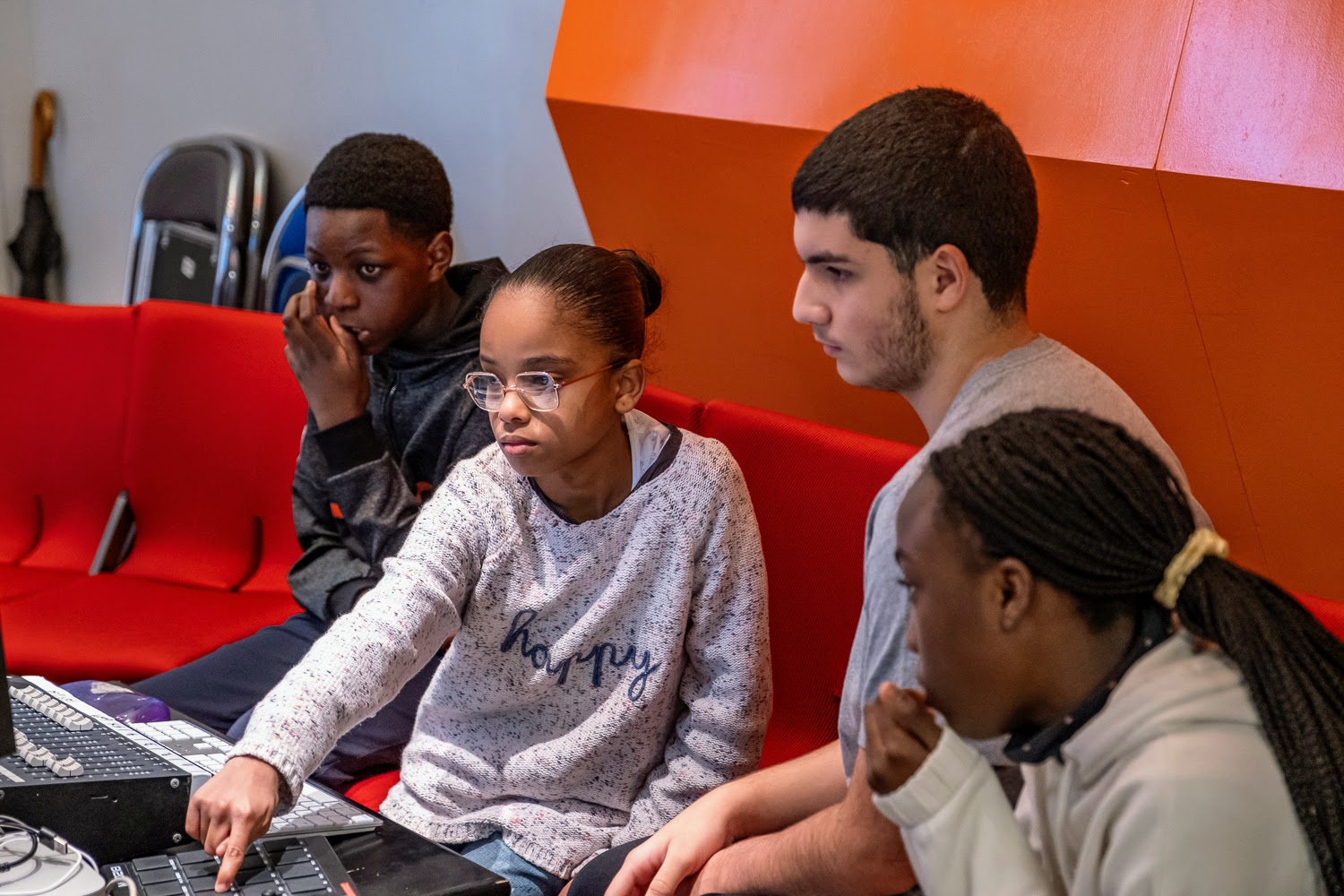
A group of four schoolchildren mix and edit the sounds collected in the gyms and streets of the 19th arrondissement.
Crédit photo :
Clément Dorval / Ville de Paris
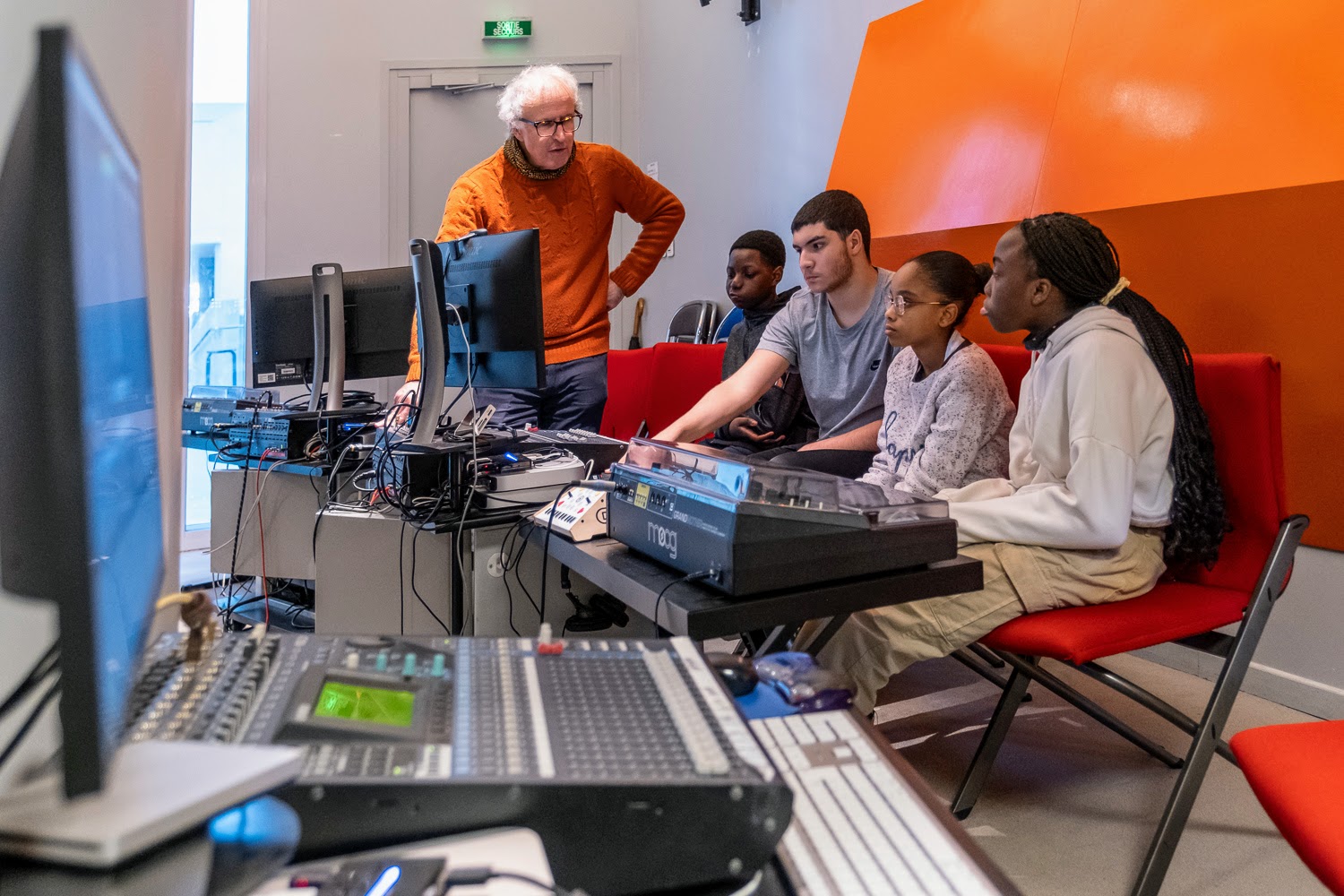
Christophe Rosenberg, educational coordinator at the Philharmonie de Paris, explains.
Crédit photo :
Clément Dorval / Ville de Paris
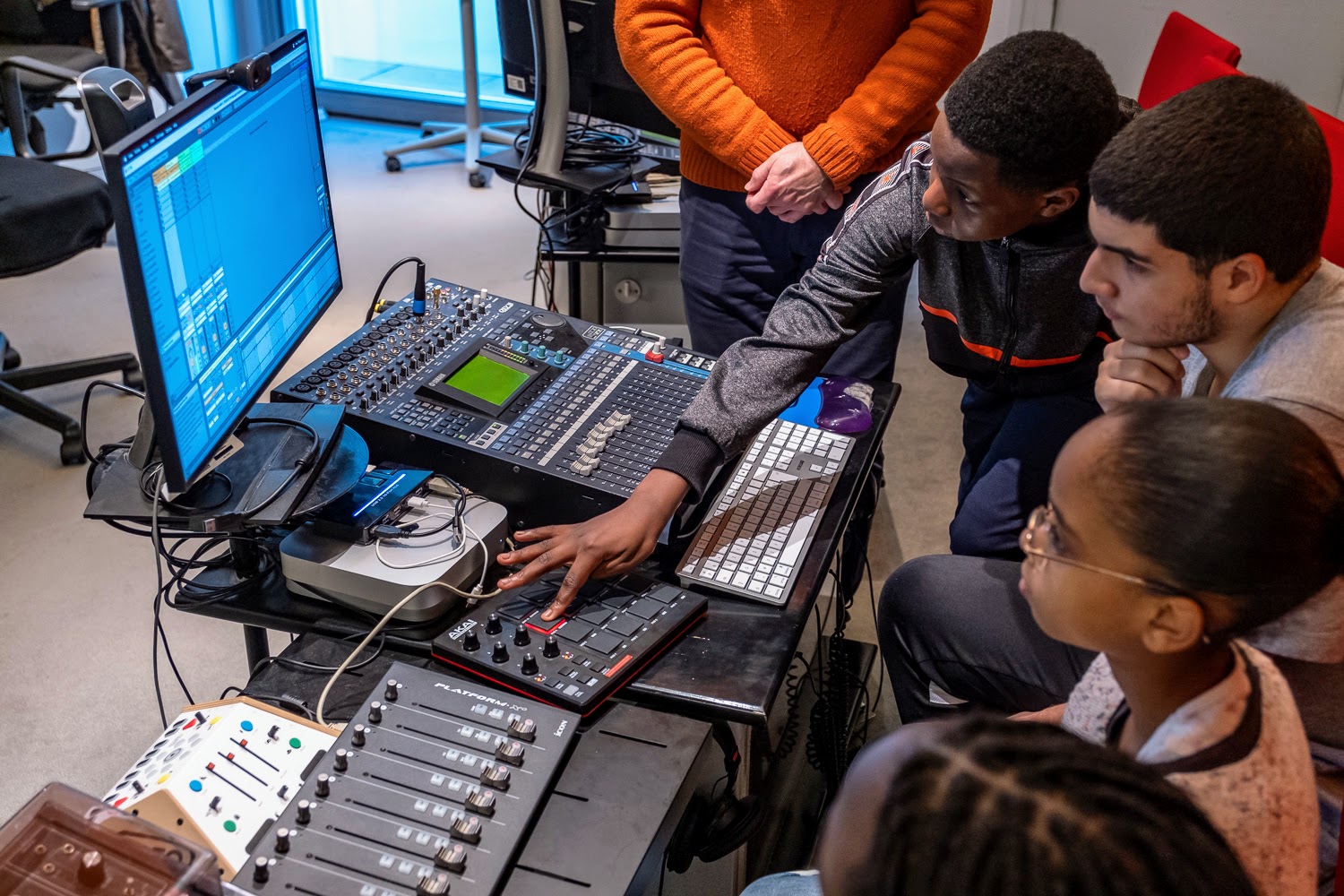
Students from Collège Mozart learn the basics of mixing.
Crédit photo :
Clément Dorval / Ville de Paris
A first group spent the afternoon in the editing and mixing workshop with Christophe Rosenberg, educational coordinator at the Philharmonie, to analyze the sounds they had collected. "They listen to them, cut out the best extracts, clean up the tapes, and gradually create a piece: from noises, we create sounds… and several sounds make music", explains the professional, who encourages them to characterize what they hear and, in so doing, awaken their listening awareness.
"Behind that ball bounce, in the background, you can hear the sound of a fire engine passing behind, should we keep it in?" he asks Ilias. "And that squeak of tennis shoes, we could mix it with a violin sound, varying the bass and treble," he suggests to Nassou, explaining how to use the sliders on the console.
Ali Baba's cavern
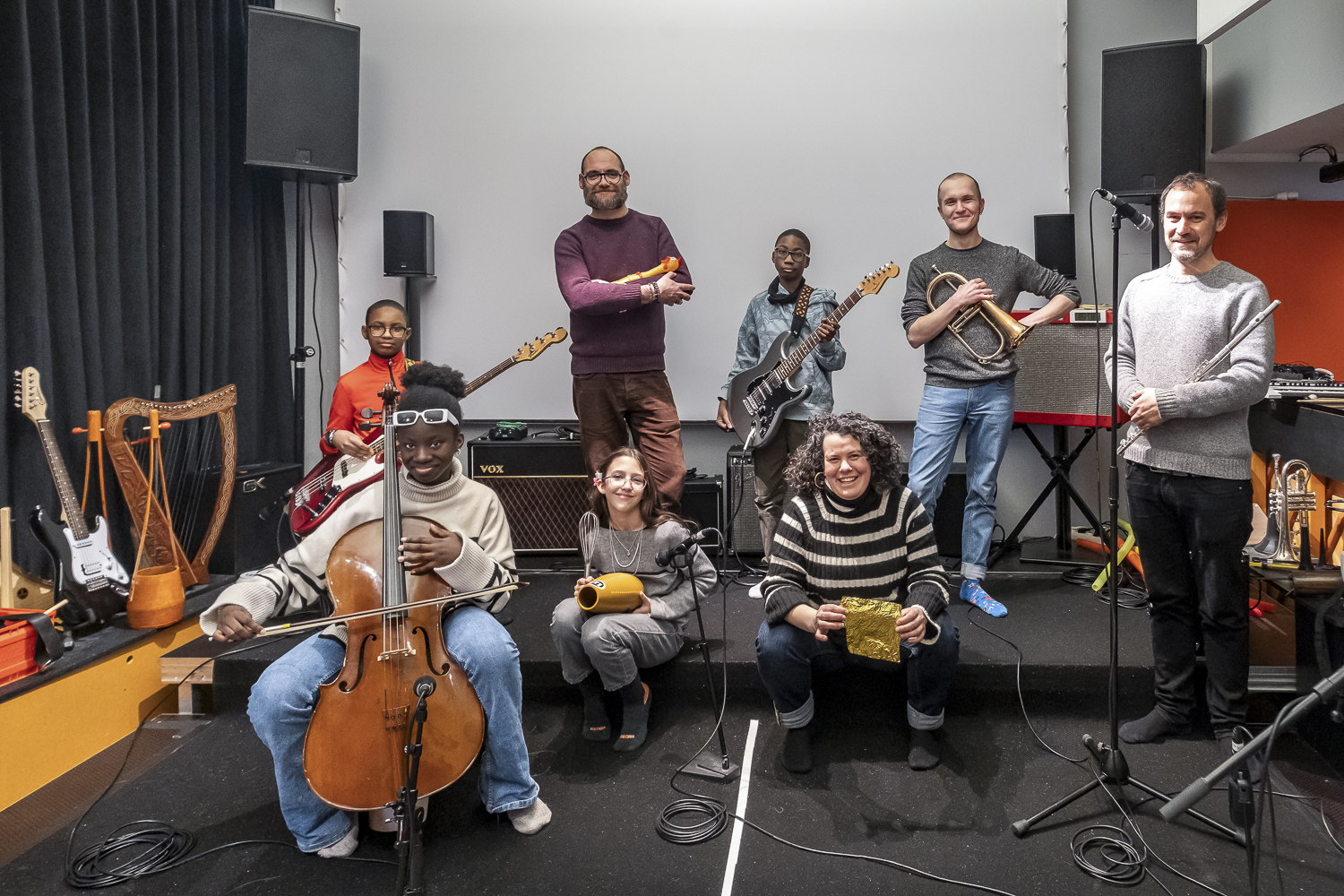
Some of the 5th graders from Collège Mozart (19th arrondissement), their music teacher and musicians from the Orchestre de chambre de Paris.
Crédit photo :
Clément Dorval / Ville de Paris
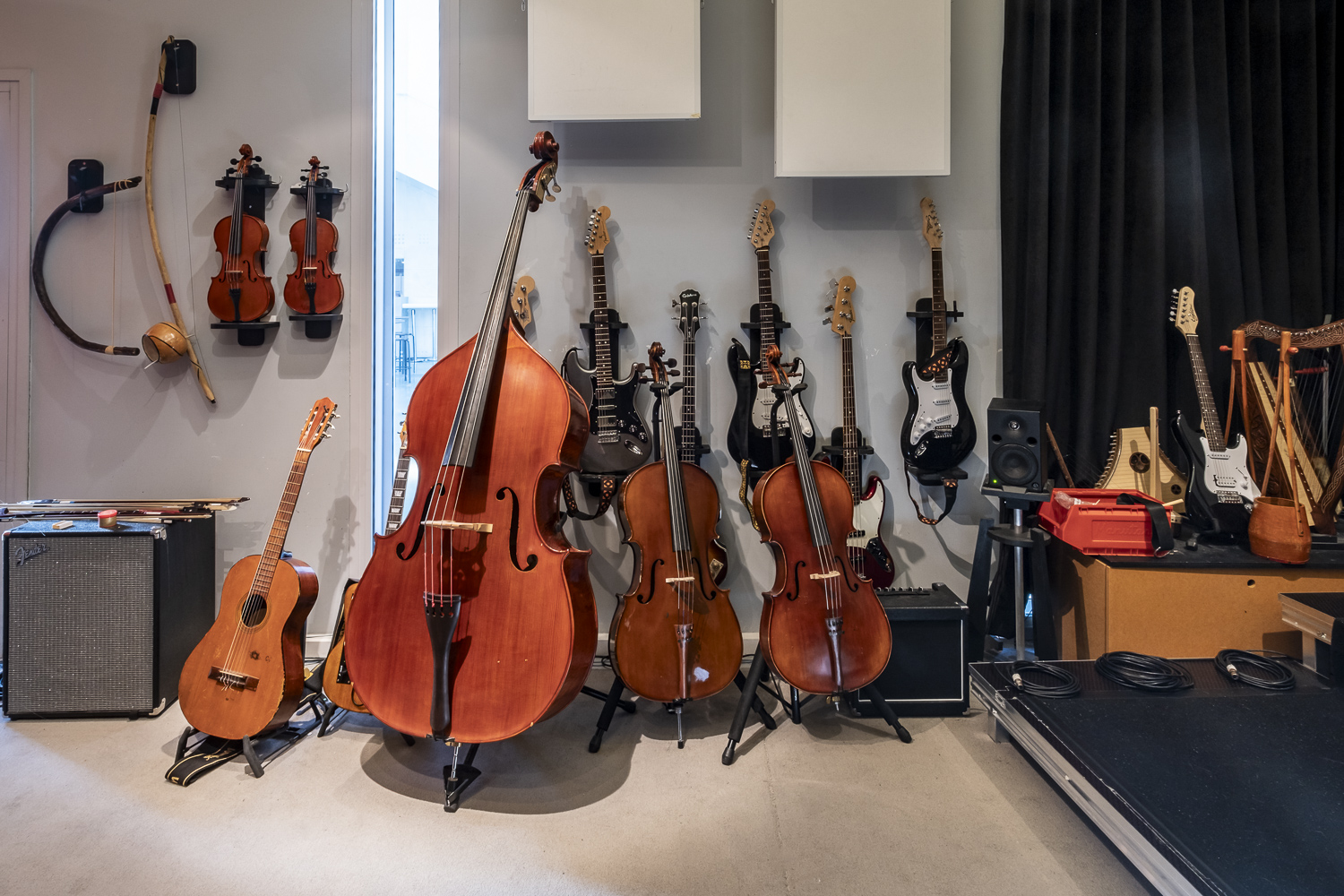
At the Philharmonie, an Ali Baba's cave filled with… instruments
Crédit photo :
Clément Dorval / Ville de Paris
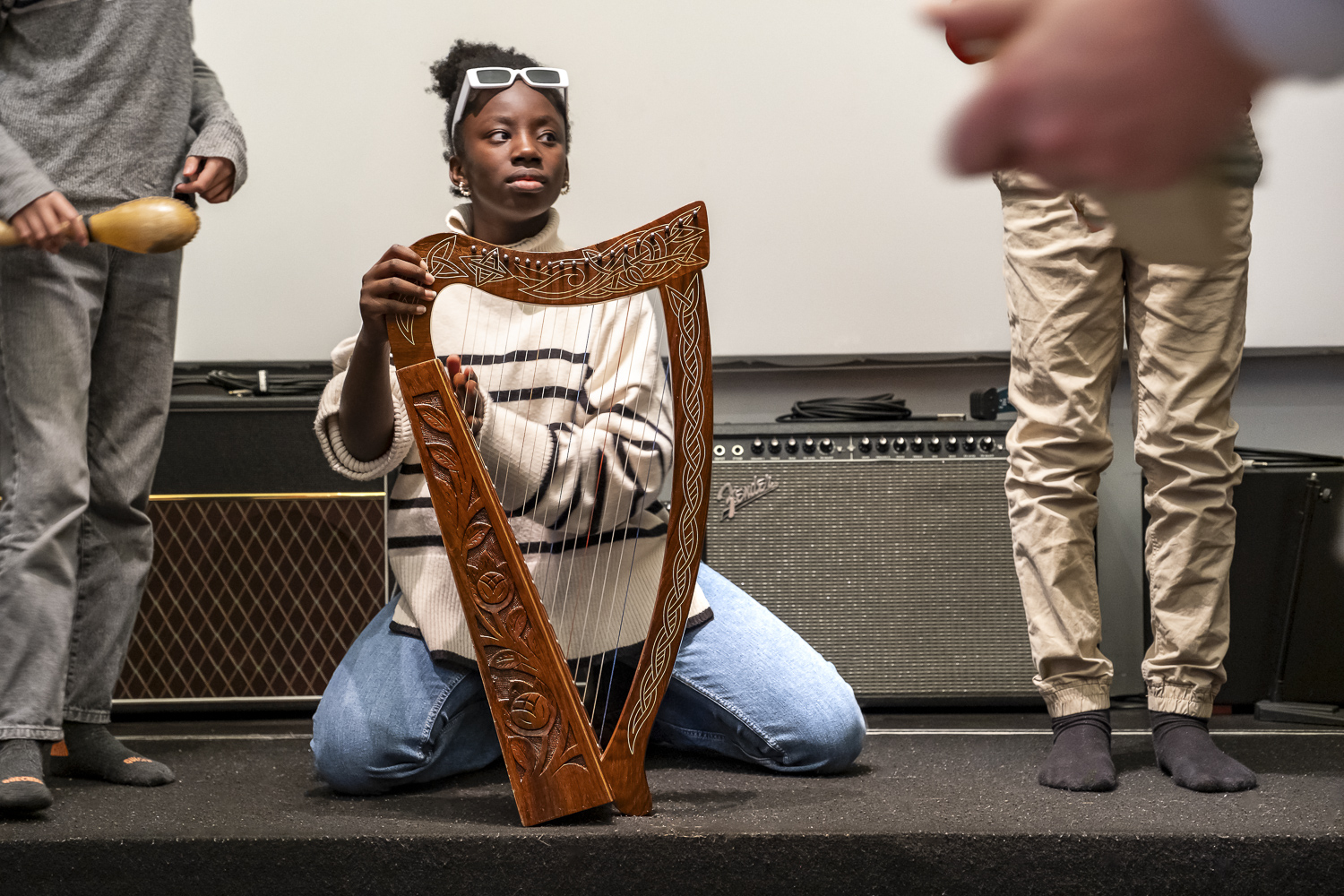
Children test the instruments.
Crédit photo :
Clément Dorval / Ville de Paris
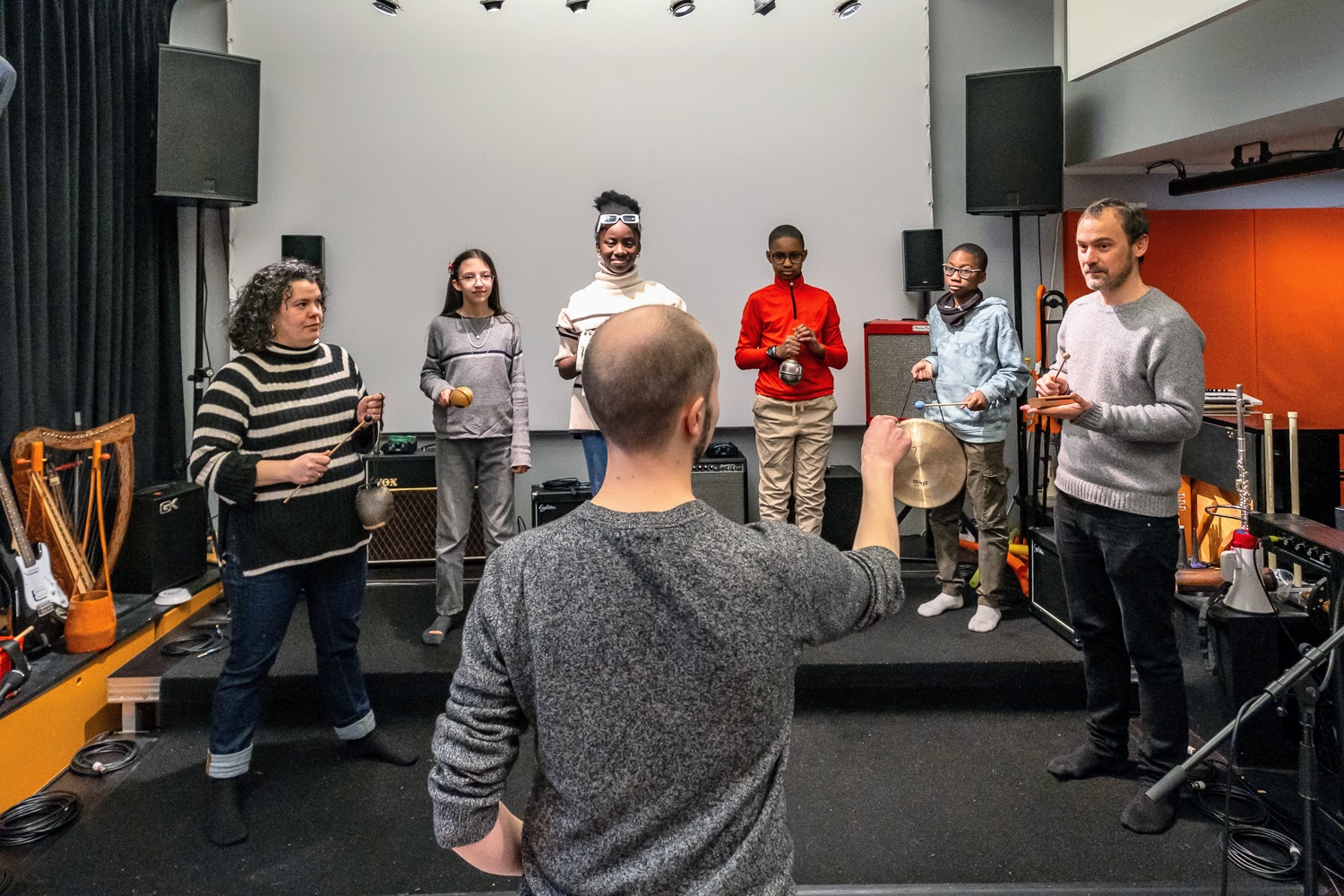
Students and musicians, led by the composer, propose sounds linked to sport.
Crédit photo :
Clément Dorval / Ville de Paris
Four other students, joined by two musicians from the Orchestre de chambre de Paris - Liselotte Schricke and Guillaume Pierlot - work with Damien, a sound technician at the Philharmonie, and Victor Wetzel, the composer of the musical creation, in the recording area. It's like Ali Baba's cavern, there's hundreds of instruments to discover - from maracas to harps, violas and bells - which they all have a go with.
Now it's time to respond to Victor's athletics sounds with music: momentum, boxing blows, dance rhythms… They're also learning how to play to the beat, control volume and add nuance to their little band.
Once the piece is ready, the composer adds the finishing touches. All that remains is to prepare for the show.
Over the a few months, the youngsters learn what it's like to be a musician, how the orchestra works and are introduced to contemporary music.
delegate for cultural activities at the orcheste de chambre de paris
Artists in the making
"For the Orchestre de chambre de Paris, taking part in this project is an opportunity to establish a relationship and musical encounters with those who don't always have the opportunity to do so," explains Amélie Eblé, in charge of cultural and civic initiatives. "L'Art pour grandir gave us carte blanche for the contents of the project, which we wanted to be three-fold: discovery, participation and restitution. Through various workshops, over the course of a few months, the youngsters learn what it's like to be a musician, how an orchestra works and are introduced to contemporary music. They are invited to rehearsals and concerts. Then, in the creative workshop section, they collaborate with a young composer and learn about the profession. The restitution, a multi-disciplinary show of the highest standard presented in public, is the icing on the cake: they are no longer just schoolchildren, but artists too!
A look back at the 2022-2023 edition
Vidéo Youtube
Do you like art education topics?
Default Confirmation Text
Settings Text Html
Settings Text Html
We want to hear from you!
Was this information useful to you?
Please note: we cannot reply via this form (please do not include any personal information).
